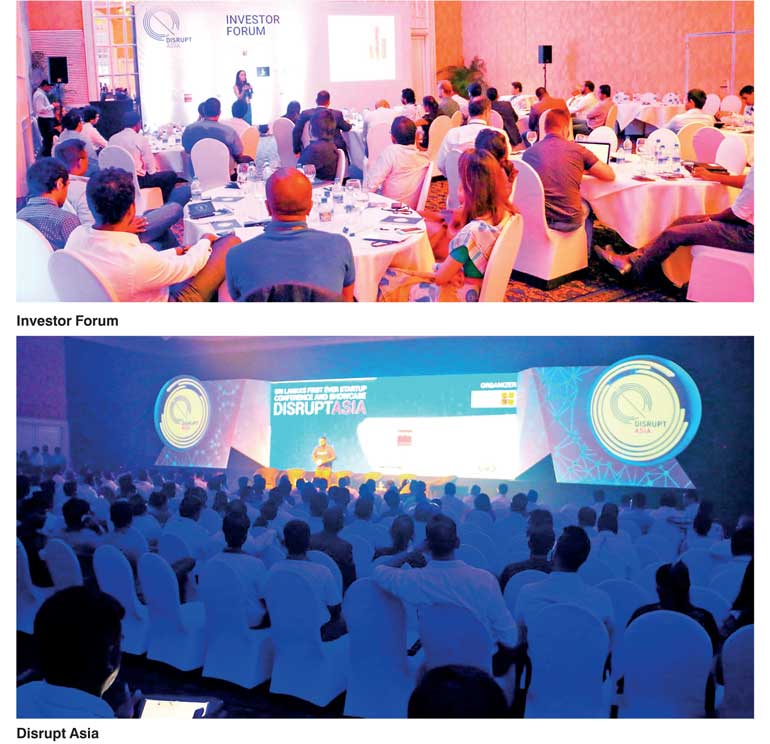Saturday Feb 21, 2026
Saturday Feb 21, 2026
Friday, 16 June 2017 00:00 - - {{hitsCtrl.values.hits}}

While the world has embraced Information and Communication Technology (ICT) as an enabler of social and economic development, there is no doubt that ICT has found its niche in every sphere of Sri Lanka’s polity.
As the Minister of Telecommunication and Digital Infrastructure Harin Fernando recognises the colossal role ICT plays, “ICT must be a key driving force in leading Sri Lanka towards a knowledge based society and leading our society towards a sustainable economy,” he said.
A significant milestone in the development of the ICT industry in the country was the formulation of the Information and Communication Technology Agency (ICTA) of Sri Lanka as the apex ICT institution of the Government under the Information and Communication Technology Act No.27 of 2003.
As an institution overseen by Ministry of Telecommunication and Digital Infrastructure, ICTA has followed robust programs, especially in the last two years under the auspices of the Minister.
“ICTA facilitates the creation of a dynamic ecosystem with the capacity to respond to technological advances as well as changes in the global technology industry,” the Minister said.
With the great potential information and communication technology has to accelerate human and economic progress, Minister stressed the need to develop new technologies that have lasting social impact and bridge the digital divide.
“We need to nurture ideas and innovations especially in ICT entrepreneurship to bring about a significant paradigm shift to achieve sustainable economic and social development,” he added.
Taking cues from the burgeoning global entrepreneurial ecosystem the Minister said, “Our Government has a forward-looking vision to build a fully integrated entrepreneurial ecosystem so that the country would have the best chances of competing regionally.”
Significantly, Sri Lanka for the first time, made an appearance in the Global Startup Ecosystem Report 2017 – a useful benchmark to analyse and compare our country’s standing against how the rest of the world is doing. “Our ICTA has spearheaded initiatives towards this and we have witnessed a spurt of startups and a major growth in entrepreneurship in the last few years,” observed the Minister.
“While the recent growth of our startup ecosystem is impressive our continued success to build the capacity of these startups will hinge on our ability to not only put the right policies and strategies in place, but in forming definitive collaborations amongst entrepreneurs, support organisations, and investors,” added the Minister.
“ICTA acts as a national accelerator to catalyse innovations and through several initiatives provide startups with support,” he said.
The Agency’s Tech Start-up and IT SMEs Support Programmes have recorded positive results in supporting the industry through its seed funding, market access, mentoring and training initiatives.
The Agency’s ongoing Spiralation Seed Funding program which provides seed funding for promising startups has shown impressive outcomes with about 86% of the beneficiary companies being able to continue business without any disruption.
The argument that Lankan startups need funding cannot be overstated. “Building the capacity of the majority of local startups is imperative as they often have great ideas but not enough money to implement them,” he noted.
Offering all players in the startup ecosystem an interactive platform, ICTA annually organises a startup conference and exhibition. Now in its second consecutive year, ‘Disrupt Asia 2017’ features top international speakers, mentors and investors, showcasing innovative startups, propelling Sri Lanka into the entrepreneurial spotlight.
Through ICTA’s provision of training, networking sessions and promotional opportunities, support for startups to attend foreign conferences and exhibitions are also carried out. These schemes encourage young ICT entrepreneurs and help to promote and strengthen their start-up companies.
ICTA’s role to facilitate market linkages and networking events as well as participation in other startup events in overseas markets has also contributed to develop the local startup eco system. “Sri Lankan ICT businesses especially startups are at the tipping point of transforming our nation with many expanding beyond our borders. We must remain committed to supporting them with Government and Private Sector coming together in a concerted effort working towards helping them develop on a global scale,” the Minister concluded.